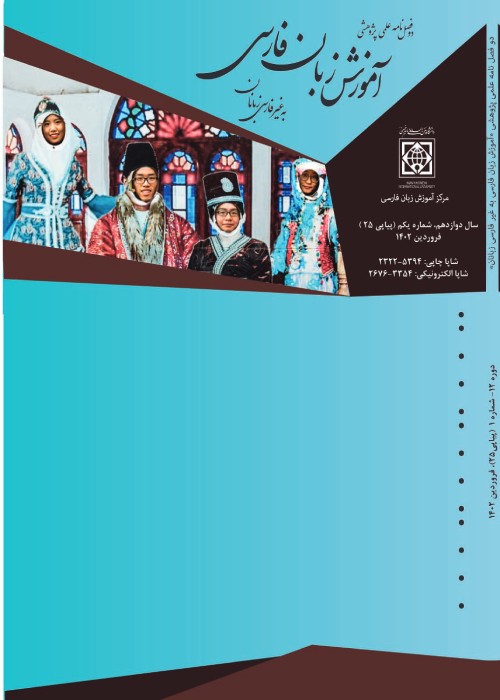Interrelationships between Willingness To Communicate, Self-Concept, Ideal L2 Self, and Teacher Credibility Among Persian Language Learners in Iran
Important role of willingness to communicate (WTC) in learning a second language has made scholars to look for the variables that can enhance WTC among language learners. This study was an effort to examine the interrelationships between WTC, self-concept, ideal L2 self, and teacher credibility among Persian learners experimentally. That is, the effects of two personal variables (self-concept, ideal L2 self,) and a social variable (teacher credibility) on WTC were measured. To this end, 136 Persian learners participated in the study. They were asked to complete WTC (Khatib & Nourzadeh, 2014), ideal L2 self (Papi, 2010), self-concept (Erten, 2015), and teacher credibility (McCroskey & Teven, 1999) questionnaires. Descriptive statistics and regression analyses showed that teacher credibility, self-concept, and ideal L2 self could predict the participants’ WTC. Finally, some measures were suggested for the improvement of WTC. </strong> Extended Abstract</strong> Important role of willingness to communicate (WTC) in learning a second language has made scholars look for the variables that can influence its level among language learners. This study was an effort to examine the interrelationships between WTC, ideal L2 self, self-concept, and teacher credibility among Persian learners. WTC refers to the tendency of language learners to start communication when they are given a choice not to do so. However, language learners are different from one another in terms of WTC; some of them prefer to be silent while others prefer to take part in communicative tasks and activities. MacIntyre et al. (1998), in their exploratory model, argue that WTC is not a constant variable, and its level is influenced by several personal and situational variables.Self-concept (Erten& Burden, 2014) and ideal L2 self (Dörnyei, 2005) are among the motivational variables, which have recently received considerable attention from scholars. Self-concept refers to language learners’ perceptions of their language learning abilities. Ideal L2 self, on the other hand, refers to the goals that language learners want to achieve and the person they want to become by learning L2. It can be argued that if language learners have positive perceptions about their language learning abilities and set higher goals for themselves to achieve by learning L2, their motivation to take part in classroom tasks and activities and hence their level of WTC increase too. Teacher credibility (Trad et al., 2014) is another situational variable, which can influence language learners’ engagement with tasks and activities. Teacher credibility refers to language learners’ perceptions of their teacher’s knowledge and skills, and how well s/he can teach. It can be stated that if language learners have positive beliefs about their teachers’ abilities, their engagement with language learning tasks and activities can increase. However, the interrelationship between language learners’ WTC, self-concept, and ideal L2 self and teacher credibility is yet to be examined, especially in Persian learning contexts.The sample of this study included 136 Persian language learners from different countries such as Germany, Switzerland, Japan, Iraq, Lebanon, and Syria. The participants were asked to respond to self-concept, ideal L2 self, teacher credibility, and WTC scales. Participation in this study was voluntary, and those learners who agreed to participate were instructed how to respond to the questionnaires. Pearson correlation coefficient tests and standard multiple regression were performed to analyze the data. The results revealed that there was a positive correlation between WTC, ideal L2 self, self-concept, and teacher credibility. Additionally, standard multiple regression showed that academic self-concept, ideal L2 self, and teacher credibility could predict the participants’ WTC. The results of the present study can suggest that to increase Persian learners’ WTC, which can significantly contribute to their Persian development, efforts should be made to increase their level of motivational variables such as self-concept and ideal L2 self. If Persian learners consider themselves as successful language learners and have higher goals for their Persian learning, their motivation to take part in classroom activities and to engage with language learning materials and tasks improves and hence their WTC. Moreover, teachers can increase their Persian learners’ WTC by using appropriate interpersonal and teaching behaviors and supporting their students in their language learning process.
- حق عضویت دریافتی صرف حمایت از نشریات عضو و نگهداری، تکمیل و توسعه مگیران میشود.
- پرداخت حق اشتراک و دانلود مقالات اجازه بازنشر آن در سایر رسانههای چاپی و دیجیتال را به کاربر نمیدهد.


